John Ruskin - Lectures on Art, Delivered Before the University of Oxford in Hilary Term, 1870
Здесь есть возможность читать онлайн «John Ruskin - Lectures on Art, Delivered Before the University of Oxford in Hilary Term, 1870» — ознакомительный отрывок электронной книги совершенно бесплатно, а после прочтения отрывка купить полную версию. В некоторых случаях можно слушать аудио, скачать через торрент в формате fb2 и присутствует краткое содержание. Жанр: foreign_antique, foreign_home, literature_19, visual_arts, на английском языке. Описание произведения, (предисловие) а так же отзывы посетителей доступны на портале библиотеки ЛибКат.
- Название:Lectures on Art, Delivered Before the University of Oxford in Hilary Term, 1870
- Автор:
- Жанр:
- Год:неизвестен
- ISBN:нет данных
- Рейтинг книги:4 / 5. Голосов: 1
-
Избранное:Добавить в избранное
- Отзывы:
-
Ваша оценка:
- 80
- 1
- 2
- 3
- 4
- 5
Lectures on Art, Delivered Before the University of Oxford in Hilary Term, 1870: краткое содержание, описание и аннотация
Предлагаем к чтению аннотацию, описание, краткое содержание или предисловие (зависит от того, что написал сам автор книги «Lectures on Art, Delivered Before the University of Oxford in Hilary Term, 1870»). Если вы не нашли необходимую информацию о книге — напишите в комментариях, мы постараемся отыскать её.
Lectures on Art, Delivered Before the University of Oxford in Hilary Term, 1870 — читать онлайн ознакомительный отрывок
Ниже представлен текст книги, разбитый по страницам. Система сохранения места последней прочитанной страницы, позволяет с удобством читать онлайн бесплатно книгу «Lectures on Art, Delivered Before the University of Oxford in Hilary Term, 1870», без необходимости каждый раз заново искать на чём Вы остановились. Поставьте закладку, и сможете в любой момент перейти на страницу, на которой закончили чтение.
Интервал:
Закладка:
But we need not feel any discomfort in these limitations of our capacity. We can do much that others cannot, and more than we have ever yet ourselves completely done. Our first great gift is in the portraiture of living people—a power already so accomplished in both Reynolds and Gainsborough that nothing is left for future masters but to add the calm of perfect workmanship to their vigour and felicity of perception. And of what value a true school of portraiture may become in the future, when worthy men will desire only to be known, and others will not fear to know them, for what they truly were, we cannot from any past records of art influence yet conceive. But in my next address it will be partly my endeavour to show you how much more useful, because more humble, the labour of great masters might have been, had they been content to bear record of the souls that were dwelling with them on earth, instead of striving to give a deceptive glory to those they dreamed of in heaven.
16. Secondly, we have an intense power of invention and expression in domestic drama; (King Lear and Hamlet being essentially domestic in their strongest motives of interest). There is a tendency at this moment towards a noble development of our art in this direction, checked by many adverse conditions, which may be summed in one,—the insufficiency of generous civic or patriotic passion in the heart of the English people; a fault which makes its domestic affection selfish, contracted, and, therefore, frivolous.
17. Thirdly, in connection with our simplicity and good-humour, and partly with that very love of the grotesque which debases our ideal, we have a sympathy with the lower animals which is peculiarly our own; and which, though it has already found some exquisite expression in the works of Bewick and Landseer, is yet quite undeveloped. This sympathy, with the aid of our now authoritative science of physiology, and in association with our British love of adventure, will, I hope, enable us to give to the future inhabitants of the globe an almost perfect record of the present forms of animal life upon it, of which many are on the point of being extinguished.
Lastly, but not as the least important of our special powers, I have to note our skill in landscape, of which I will presently speak more particularly.
18. Such I conceive to be the directions in which, principally, we have the power to excel; and you must at once see how the consideration of them must modify the advisable methods of our art study. For if our professional painters were likely to produce pieces of art loftily ideal in their character, it would be desirable to form the taste of the students here by setting before them only the purest examples of Greek, and the mightiest of Italian, art. But I do not think you will yet find a single instance of a school directed exclusively to these higher branches of study in England, which has strongly, or even definitely, made impression on its younger scholars. While, therefore, I shall endeavour to point out clearly the characters to be looked for and admired in the great masters of imaginative design, I shall make no special effort to stimulate the imitation of them; and above all things, I shall try to probe in you, and to prevent, the affectation into which it is easy to fall, even through modesty,—of either endeavouring to admire a grandeur with which we have no natural sympathy, or losing the pleasure we might take in the study of familiar things, by considering it a sign of refinement to look for what is of higher class, or rarer occurrence.
19. Again, if our artisans were likely to attain any distinguished skill in ornamental design, it would be incumbent upon me to make my class here accurately acquainted with the principles of earth and metal work, and to accustom them to take pleasure in conventional arrangements of colour and form. I hope, indeed, to do this, so far as to enable them to discern the real merit of many styles of art which are at present neglected; and, above all, to read the minds of semi-barbaric nations in the only language by which their feelings were capable of expression; and those members of my class whose temper inclines them to take pleasure in the interpretation of mythic symbols, will not probably be induced to quit the profound fields of investigation which early art, examined carefully, will open to them, and which belong to it alone: for this is a general law, that supposing the intellect of the workman the same, the more imitatively complete his art, the less he will mean by it; and the ruder the symbol, the deeper is its intention. Nevertheless, when I have once sufficiently pointed out the nature and value of this conventional work, and vindicated it from the contempt with which it is too generally regarded, I shall leave the student to his own pleasure in its pursuit; and even, so far as I may, discourage all admiration founded on quaintness or peculiarity of style; and repress any other modes of feeling which are likely to lead rather to fastidious collection of curiosities, than to the intelligent appreciation of work which, being executed in compliance with constant laws of right, cannot be singular, and must be distinguished only by excellence in what is always desirable.
20. While, therefore, in these and such other directions, I shall endeavour to put every adequate means of advance within reach of the members of my class, I shall use my own best energy to show them what is consummately beautiful and well done, by men who have passed through the symbolic or suggestive stage of design, and have enabled themselves to comply, by truth of representation, with the strictest or most eager demands of accurate science, and of disciplined passion. I shall therefore direct your observation, during the greater part of the time you may spare to me, to what is indisputably best, both in painting and sculpture; trusting that you will afterwards recognise the nascent and partial skill of former days both with greater interest and greater respect, when you know the full difficulty of what it attempted, and the complete range of what it foretold.
21. And with this view, I shall at once endeavour to do what has for many years been in my thoughts, and now, with the advice and assistance of the curators of the University Galleries, I do not doubt may be accomplished here in Oxford, just where it will be preëminently useful—namely, to arrange an educational series of examples of excellent art, standards to which you may at once refer on any questionable point, and by the study of which you may gradually attain an instinctive sense of right, which will afterwards be liable to no serious error. Such a collection may be formed, both more perfectly, and more easily, than would commonly be supposed. For the real utility of the series will depend on its restricted extent,—on the severe exclusion of all second-rate, superfluous, or even attractively varied examples,—and On the confining the students' attention to a few types of what is insuperably good. More progress in power of judgment may be made in a limited time by the examination of one work, than by the review of many; and a certain degree of vitality is given to the impressiveness of every characteristic, by its being exhibited in clear contrast, and without repetition.
The greater number of the examples I shall choose will be only engravings or photographs: they shall be arranged so as to be easily accessible, and I will prepare a catalogue, pointing out my purpose in the selection of each. But in process of time, I have good hope that assistance will be given me by the English public in making the series here no less splendid than serviceable; and in placing minor collections, arranged on a similar principle, at the command also of the students in our public schools.
22. In the second place, I shall endeavour to prevail upon all the younger members of the University who wish to attend the art lectures, to give at least so much time to manual practice as may enable them to understand the nature and difficulty of executive skill. The time so spent will not be lost, even as regards their other studies at the University, for I will prepare the practical exercises in a double series, one illustrative of history, the other of natural science. And whether you are drawing a piece of Greek armour, or a hawk's beak, or a lion's paw, you will find that the mere necessity of using the hand compels attention to circumstances which would otherwise have escaped notice, and fastens them in the memory without farther effort. But were it even otherwise, and this practical training did really involve some sacrifice of your time, I do not fear but that it will be justified to you by its felt results: and I think that general public feeling is also tending to the admission that accomplished education must include, not only full command of expression by language, but command of true musical sound by the voice, and of true form by the hand.
Читать дальшеИнтервал:
Закладка:
Похожие книги на «Lectures on Art, Delivered Before the University of Oxford in Hilary Term, 1870»
Представляем Вашему вниманию похожие книги на «Lectures on Art, Delivered Before the University of Oxford in Hilary Term, 1870» списком для выбора. Мы отобрали схожую по названию и смыслу литературу в надежде предоставить читателям больше вариантов отыскать новые, интересные, ещё непрочитанные произведения.
Обсуждение, отзывы о книге «Lectures on Art, Delivered Before the University of Oxford in Hilary Term, 1870» и просто собственные мнения читателей. Оставьте ваши комментарии, напишите, что Вы думаете о произведении, его смысле или главных героях. Укажите что конкретно понравилось, а что нет, и почему Вы так считаете.
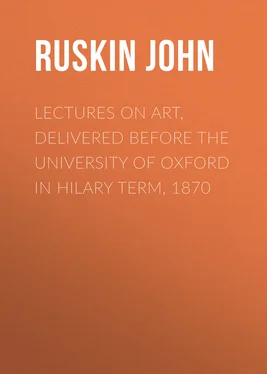



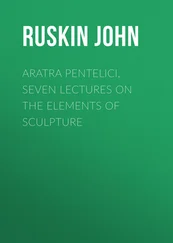
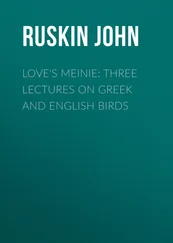

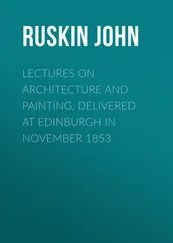

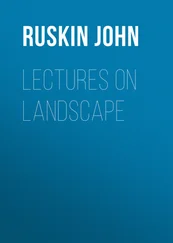


![John Bruce - The Lettsomian Lectures on Diseases and Disorders of the Heart and Arteries in Middle and Advanced Life [1900-1901]](/books/749387/john-bruce-the-lettsomian-lectures-on-diseases-and-disorders-of-the-heart-and-arteries-in-middle-and-advanced-life-1900-1901-thumb.webp)